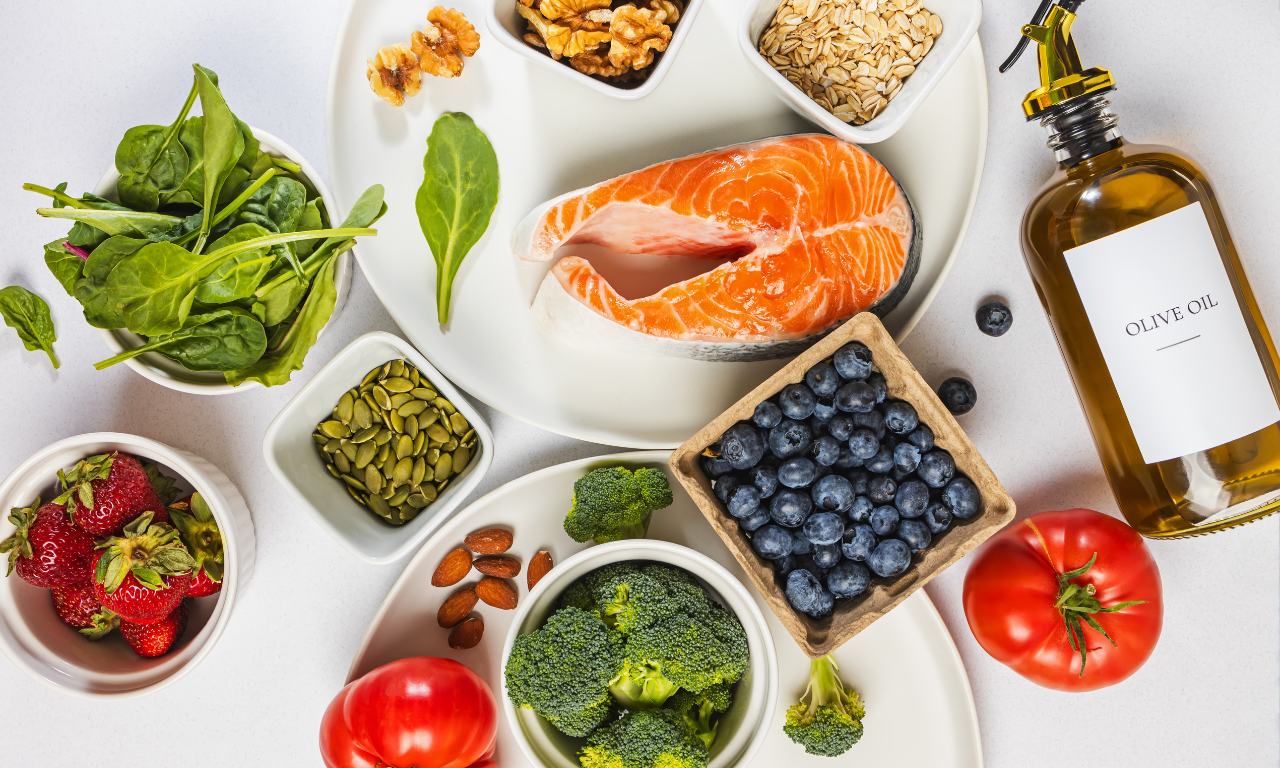As a Registered Dietitian Nutritionist, I frequently encounter questions about inflammation and its effects on our health. While inflammation is actually a natural and necessary process for healing, chronic inflammation can lead to serious health concerns. In this post, I'll explain what inflammation is, why chronic inflammation poses risks, and how certain foods can help combat it.
What Is Inflammation?
Inflammation is your body's natural defense mechanism against injury, infection, or other harmful stimuli. When you cut your finger or catch a cold, inflammation helps your body heal and fight off pathogens. This acute inflammation is beneficial and essential for survival.
However, problems arise when inflammation becomes chronic, lasting for months or even years. This persistent state of inflammation can damage healthy cells, tissues, and organs, potentially leading to various health conditions.
Chronic inflammation has been linked to numerous health conditions, including:
- Cardiovascular disease
- Type 2 diabetes
- Rheumatoid arthritis
- Certain types of cancer
- Alzheimer's disease
- Autoimmune disorders
How Anti-Inflammatory Foods Work
Anti-inflammatory foods contain specific compounds that help reduce inflammation in the body through several mechanisms, particularly by neutralizing free radicals. Here's a deeper look at this process:
Understanding Free Radicals and Oxidative Stress
Free radicals are unstable molecules that contain unpaired electrons. Think of them as molecular thieves – they steal electrons from other molecules in your body, including proteins, fats, and even DNA. This theft creates a chain reaction of damage, leading to:
- Cell membrane damage
- DNA mutations
- Protein structure changes
- Tissue injury
When free radicals accumulate faster than your body can neutralize them, it creates oxidative stress, which triggers inflammation. This is where antioxidants come in.
How Antioxidants Neutralize Free Radicals
Antioxidants work as "electron donors" – they give up their own electrons to free radicals, effectively neutralizing them.
This process:
1. Stops the electron-stealing chain reaction
2. Prevents cellular damage
3. Reduces inflammatory signals
4. Protects healthy tissue
Different antioxidants work in different ways:
- Vitamin C: Acts in the watery portions of cells
- Vitamin E: Protects cell membranes
- Beta-carotene: Specifically targets oxygen-based free radicals
- Flavonoids: Provide broad-spectrum protection
Other anti-inflammatory compounds work through these mechanisms:
- Omega-3 fatty acids
- Polyphenols
- Beta-carotene
These compounds work together to reduce inflammatory markers and support the body's natural anti-inflammatory processes.
Top Anti-Inflammatory Foods
Wild-Caught Fatty Fish
Wild-caught fish are among the best sources of omega-3 fatty acids, particularly EPA and DHA, which have potent anti-inflammatory properties:
- Wild salmon: rich in omega-3s and astaxanthin, a powerful antioxidant
- Wild sablefish: contains high levels of omega-3s and selenium
- Wild tuna: excellent source of omega-3s and protein
Colorful Fruits
- Berries (blueberries, strawberries, blackberries): high in anthocyanins
- Cherries: contain powerful antioxidants called anthocyanins
- Pomegranates: rich in punicalagins, which have strong anti-inflammatory effects
Leafy Greens and Cruciferous Vegetables
- Spinach: High in antioxidants and vitamin K
- Kale: Rich in flavonoids and antioxidants
- Broccoli: Contains sulforaphane, a potent anti-inflammatory compound
Other Anti-Inflammatory Foods
- Extra virgin olive oil: contains oleocanthal, which has similar properties to ibuprofen
- Turmeric: contains curcumin, a powerful anti-inflammatory compound
- Ginger: contains gingerols, which help reduce inflammation
- Green tea: rich in EGCG, a potent anti-inflammatory catechin
How to Incorporate Anti-Inflammatory Foods
1. Aim to eat fatty fish 2-3 times per week
2. Include at least 2-3 servings of colorful fruits daily
3. Fill half your plate with vegetables at lunch and dinner
4. Use olive oil to make your own dressings
5. Add spices like turmeric and ginger to your meals regularly
The Science Behind It
Research supports the anti-inflammatory benefits of these foods. For example, a study published in the Journal of the American College of Cardiology found that people who regularly consumed fatty fish had lower levels of inflammatory markers in their blood. Similarly, research in the Journal of Nutrition has shown that consuming berries can reduce various markers of inflammation.
While no single food can completely prevent or cure inflammation, a diet rich in anti-inflammatory foods can help manage chronic inflammation and support overall health. Remember that consistency is key – it's the regular consumption of these foods as part of a balanced diet that provides the most benefit.
To enhance your anti-inflammatory diet's effectiveness, also consider:
- Maintaining a healthy weight
- Getting regular exercise
- Managing stress
- Getting adequate sleep
- Limiting processed foods and added sugars


